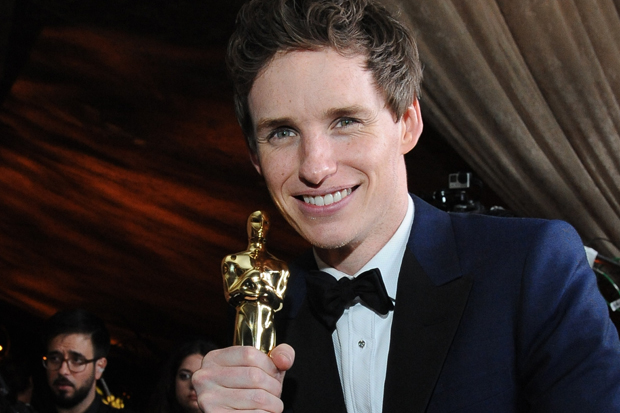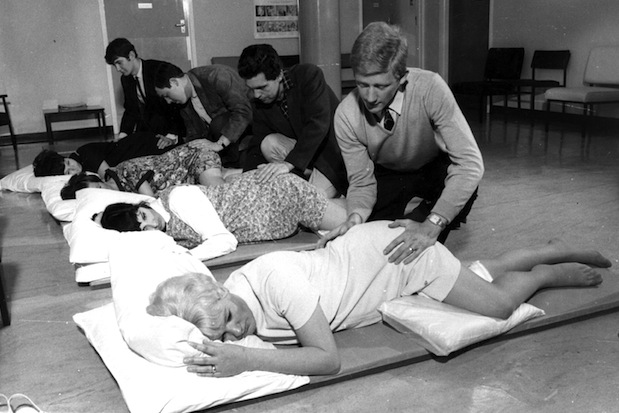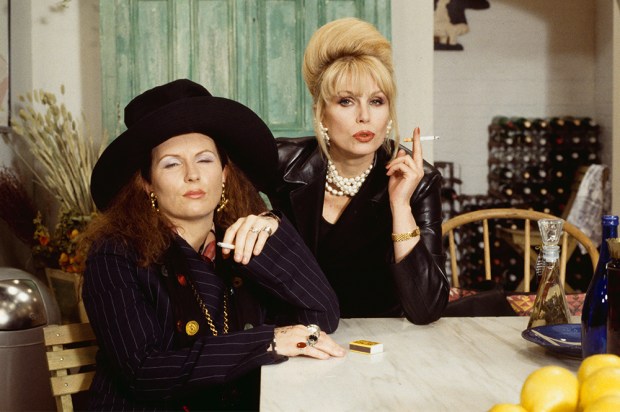Last week I went to the exhilarating English National Opera production of Wagner’s The Mastersingers — five hours of wonderful music and singing whizzed by without a moment’s boredom. But there was one odd and perturbing factor, I thought. In place of a curtain, there was a huge ‘frontcloth’. It was covered with a collage of 103 faces of well-known artists. These same faces appeared again, during the finale, this time in the form of portraits held aloft by members of the cast. They included Joseph Roth, Stefan Zweig, Sigmund Freud, Kurt Weill, Billy Wilder, Richard Tauber, Oskar Kokoschka, Hannah Arendt, Simone Weil, Lotte Lenya, Max Ernst, Marlene Dietrich. According to the opera’s director, Richard Jones, interviewed in the programme notes, they were all Germans. What was not mentioned was that these ‘Germans’ had all been hounded out of Germany, most of them because they were Jewish, others because of their ‘degenerate art’. All adopted other nationalities. Jones admits that these people may not have wished to be included in his ‘frontcloth’, and indeed that Wagner himself would have been ‘disinclined to them’ [sic]. But they were, he says, like the opera’s protagonist, ‘rule-breakers and makers of new rules’ and therefore should be seen as representing ‘the dynamic that’s at the heart of the opera’. This may in one sense be true, but it completely glosses over the uncomfortable facts of history, both personal and public. The Mastersingers is, among other things, a work which explicitly celebrates the Germanness of German art, warning against foreign influences. I’m sure that Richard Jones had the best of intentions, but to hijack these artists, putting them into a context where they are seen, as it were, singing along with the notoriously anti-Semitic Wagner (whose views had considerable influence on Hitler) seems to me to be in questionable taste.
The other day a friend of mine went to the library at the London School of Economics to search for a government white paper. It was early afternoon, but when she entered the huge state-of-the-art space she was astonished — it was just like walking into a large airport on a night when all flights had been cancelled. Students — those not working on computers — were slumped and sleeping all over the place, mainly on the numerous bean bags provided by the library for the purpose, presumably, of reading in comfort. Several slumbering students were blocking access to the relevant shelf, so my friend asked the librarian for help. The students were duly woken up and moved along. The librarian, meanwhile, seemed quite accustomed to this state of affairs. When my friend and I discussed this, we assumed that these students were merely taking advantage of a comfortable place in which to doss down. But were we being too cynical? Could they have collapsed after all their hard work?
I have been suffering from a rare condition called Redmayne-phobia, this year’s strain of the more general Oscarphobia which afflicts me every year. Not that I don’t admire this delightful and accomplished actor. It is seeing his smiling, award-winning face day in and day out in all newspapers and news channels for at least a month that has brought on my feelings of queasiness. There is a cure, but would any of the political parties be bold enough to take it up? It would involve inserting into their manifesto a promise to set a cap on media coverage of the Oscars. Such a far-sighted move might even have the added bonus of increasing the party’s vote across all sections of the electorate.
In April, hundreds of thousands of men will become eligible for up to 50 weeks of paternity leave. Whether this is a good or a bad thing for families and businesses and gender equality is the subject of acrimonious debate. But it seems to me beside the point. Why? Because all the legislation surrounding shared maternal and paternal leave only applies to the first year of a child’s life. After that it’s back to normal. But the first year of a child’s life, as every parent knows — when the child is immobile and sleeps a great deal of the time — is a doddle compared with what comes later. It is in the second and third years, when children start crawling and walking, putting everything into their mouths and throwing food around, that childcare becomes really strenuous and exhausting. As for bonding with your child, different child psychologists have different theories, but the second and third years are, in my experience, as important if not more important than the sleepy first. What is Nick Clegg going to do about that?
Got something to add? Join the discussion and comment below.
Get 10 issues for just $10
Subscribe to The Spectator Australia today for the next 10 magazine issues, plus full online access, for just $10.
Miriam Gross is the author of An Almost English Life. Miriam Gross is a former arts editor of the Observer and a former literary editor of the Sunday Telegraph. Her most recent book is An Almost English Life.
You might disagree with half of it, but you’ll enjoy reading all of it. Try your first month for free, then just $2 a week for the remainder of your first year.














Comments
Don't miss out
Join the conversation with other Spectator Australia readers. Subscribe to leave a comment.
SUBSCRIBEAlready a subscriber? Log in